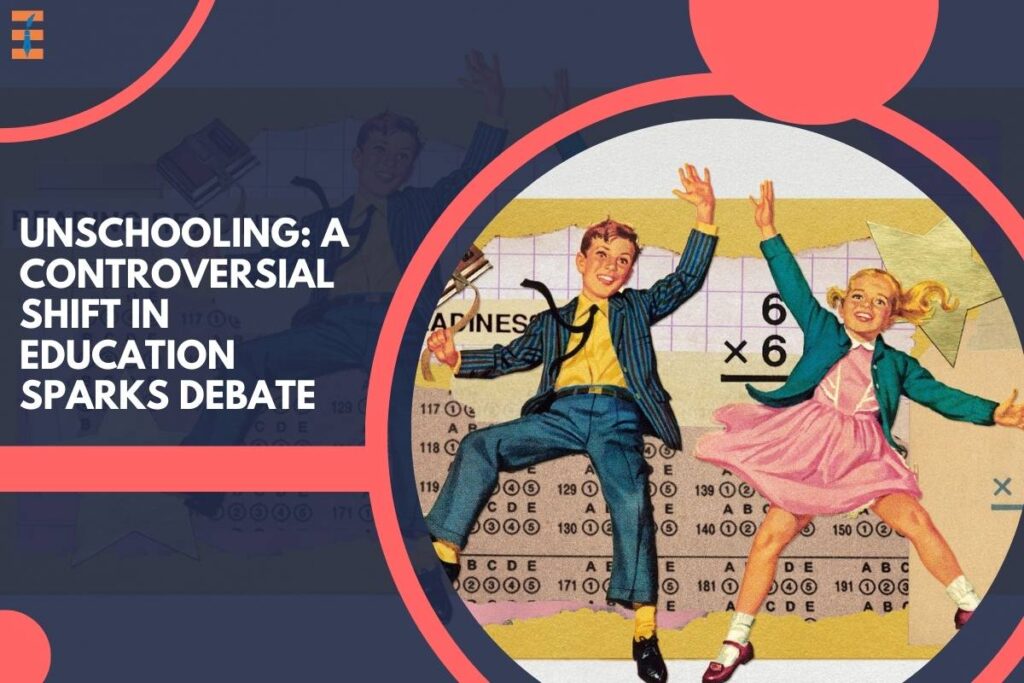Source – theweek.com
The Rise of Unschooling
In the wake of the pandemic, the landscape of education has witnessed a significant transformation. While homeschooling gained prominence as an alternative to traditional schooling, a more radical approach known as unschooling has begun to make waves. The essence of unschooling lies in eschewing structured curricula and allowing children to guide their own learning based on their interests and curiosities.
One notable advocate of unschooling, spiritual influencer Mami Onami, recently stirred controversy with her TikTok revelation that she and her partner do not actively teach their children. Instead, they respond to their children’s inquiries and interests, fostering a learning environment devoid of traditional schedules or curriculum. Onami’s approach, characterized as “free schooling,” has ignited a firestorm of debate on social media platforms, with critics questioning the effectiveness and responsibility of such a laissez-faire educational philosophy.
Despite the backlash, the unschooling movement has garnered support from a diverse array of families seeking alternatives to conventional education. Originating from the ideas of philosopher Jean-Jacques Rousseau and popularized by educator John Holt in the 1970s, unschooling has recently experienced a resurgence. Internet searches for unschooling spiked notably during the pandemic, reflecting a growing interest in non-traditional educational methodologies.
Understanding Unschooling
Unschooling represents a departure from structured homeschooling practices by placing children in charge of their learning journeys. According to Peter Gray, a psychology professor at Boston College and a leading figure in the Alliance for Self-Directed Education, unschooling is rooted in the belief that children learn best when pursuing subjects that naturally intrigue them. This method ranges widely in practice; some families adhere to loose schedules with minimal guidance on basic subjects, while others reject schedules entirely, allowing children to dictate their educational paths entirely.
This approach challenges conventional notions of schooling by emphasizing individualized learning over standardized curricula. Families adopting unschooling often prioritize broader educational goals such as creativity, critical thinking, and personal growth over traditional measures of academic success. The diversity within the unschooling community reflects a departure from its historical roots among predominantly white, conservative Christian homeschoolers, with increasing numbers of Black families embracing homeschooling as a means of educational empowerment and cultural liberation.
Debates and Concerns
As unschooling gains traction, it has also sparked concerns about its impact on socialization and civic engagement. Critics argue that removing children from structured school environments could potentially hinder their development of crucial social skills necessary for integration into broader society. Educational experts like Robert Kunzman from Indiana University caution that homeschooling may inadvertently isolate children from diverse social interactions that are vital for citizenship in a democratic society.
Conversely, proponents of homeschooling view it as a radical response to systemic issues within traditional education systems. Akilah Richards, an advocate for unschooling, frames it as a social justice practice aimed at dismantling oppressive educational structures and fostering a more inclusive approach to learning. For many families, homeschooling represents a deliberate choice to opt out of a system they perceive as outdated and ineffective in preparing children for the complexities of the modern world.
In conclusion, the rise of homeschooling highlights a growing divergence in educational philosophies, spurred by societal shifts and dissatisfaction with traditional schooling models. While advocates celebrate its potential to foster creativity and independence, skeptics question its ability to adequately prepare children for societal integration and civic responsibility. As the debate continues, the future of homeschooling may hinge on finding a balance between educational innovation and the foundational principles of social cohesion and democratic participation.

